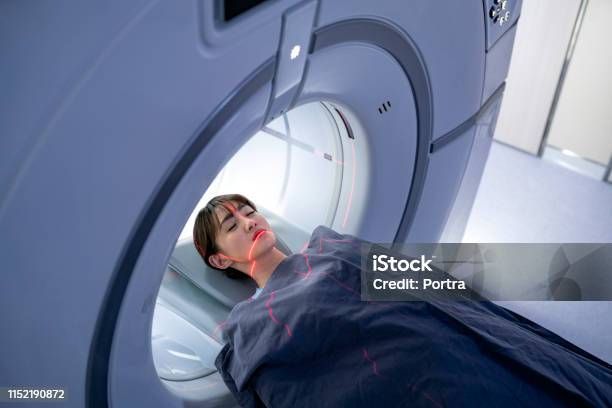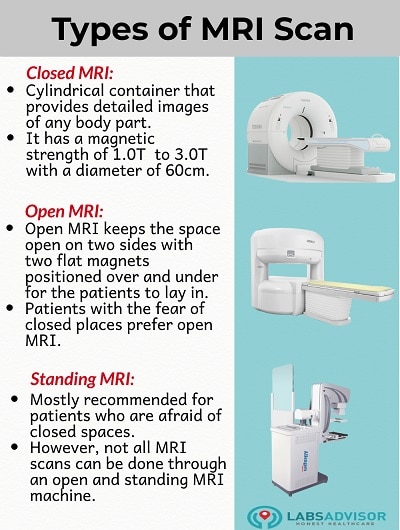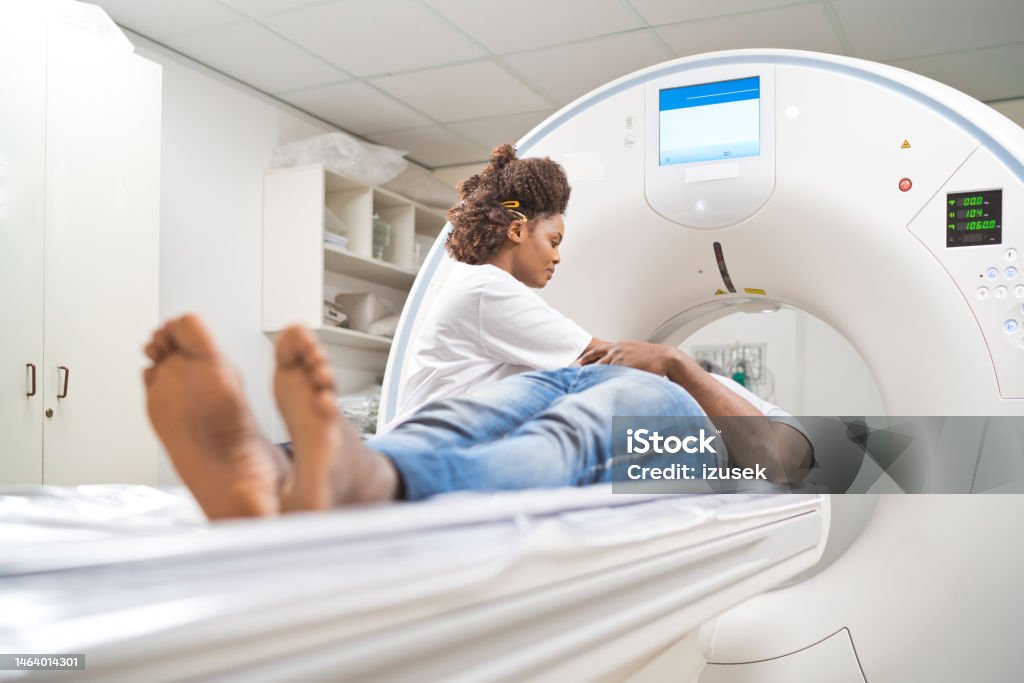
What is a M.R.I. Scan ?
Uses and applications of M.R.I. Scan
Types of M.R.I. Scan ?
Risks associated with M.R.I. Scan
WHAT IS A M.R.I. SCAN ?
Magnetic resonance imaging (M.R.I.) is a medical imaging technique which uses a magnetic field and radiowaves generated by computers to create detailed images of the organs and tissues in your body.
MRI machines are large, tube-shaped magnets. When the patient lies inside an MRI machine, the magnetic field inside works with radio waves and hydrogen atoms in your body to create cross-sectional images — like slices in a loaf of bread.
The MRI machine also can produce 3D images that can be viewed from different angles.
USES AND APPLICATIONS OF M.R.I. SCAN
MRI scanners are particularly well suited to image the non-bony parts or soft tissues of the body. They do not use the damaging ionizing radiation of x-rays. The brain, spinal cord ,nerves, muscles, ligaments, and tendons are seen much more clearly with MRI than with regular x-rays and CT, hence MRI is often used to image knee and shoulder injuries.
In the brain, MRI can differentiate between white matter and grey matter and can also be used to diagnose aneurysms and tumors. Because MRI does not use x-rays or other radiation, it is the imaging modality of choice when frequent imaging is required for diagnosis or therapy, especially in the brain. However, MRI is more expensive than x-ray imaging or CT scanning.
Functional Magnetic Resonance Imaging (fMRI) is used to observe brain structures and determine which areas of the brain “activate” during various cognitive tasks. It is used to advance the understanding of brain organization and offers a potential new standard for assessing neurological status and neurosurgical risk.
TYPES OF MRI SCANS

RISKS ASSOCIATED WITH M.R.I. SCAN
MRI does not emit the ionizing radiation that is found in x-ray and CT imaging but, it does employ a strong magnetic field . The magnetic field extends beyond the machine and exerts very powerful forces on objects of iron, some steels, and other magnetizable objects. Patients should notify their physicians of any form of medical or implant prior to an MR scan.
When having an MRI scan, the following should be taken into consideration:
- People with implants, particularly those containing iron, — pacemakers, vagus nerve stimulators, implantable cardioverter- defibrillators, loop recorders, insulin pumps, cochlear implants, deep brain stimulators, and capsules from capsule endoscopy should not enter an MRI machine.
- Noise—loud noise commonly referred to as clicking and beeping, as well as sound intensity up to 120 decibels in certain MR scanners, may require special ear protection.
- Nerve Stimulation—a twitching sensation sometimes results from the rapidly switched fields in the MRI.
- Contrast agents—patients with severe renal failure who require dialysis may risk a rare but serious illness called nephrogenic systemic fibrosis that may be linked to the use of certain gadolinium-containing agents, such as gadodiamide and others. Current guidelines in the United States recommend that dialysis patients should only receive gadolinium agents when essential, and that dialysis should be performed as soon as possible after the scan to remove the agent from the body promptly.
- Pregnancy—while no effects have been demonstrated on the fetus, it is recommended that MRI scans be avoided as a precaution especially in the first trimester of pregnancy when the fetus’ organs are being formed and contrast agents, if used, could enter the fetal bloodstream.
- Claustrophobia—people with even mild claustrophobia may find it difficult to tolerate long scan times inside the machine. Familiarization with the machine and process, as well as visualization techniques, sedation, and anesthesia provide patients with mechanisms to overcome their discomfort.
SOURCES : HTTPS://MAYOCLINIC.ORG , NIBIB.NIH.GOV , UNSPLASH.COM
*DISCLAIMER : THIS BLOG GATHERS DATA FROM SEVERAL SOURCES FOR EDUCATION PURPOSES ONLY . PLEASE DONT CONSIDER THIS AS A SUBSTITUTE OF MEDICAL ADVICE AND ALWAYS CONSULT YOUR PHYSICIAN BEFORE TAKING HEALTH DECISIONS *

